QOTD: What Really Makes a Car American?

Today is the beginning of the Independence Day holiday in America, which is this beautiful historical moment where we all take a few days off work and light things on fire. It’s also an excellent time to examine precisely what makes a car American.
I want to do this because there are a lot of Americans out there who will only buy an American car, just like there are a lot of Japanese who will only buy a Japanese car, and a lot of Germans who will only buy a German car, and a lot of South Africans who will only buy cars with bulletproof windows. But in today’s globalized world, what exactly defines a car’s country of origin?
Some would say where the car is manufactured – and that’s reasonable. After all, if a car is built in America, and sold in America by an American car dealership to someone in America, this is a pretty damn American vehicle, correct? You can only get more American if you were to get on a plane and ask personal questions to the stranger sitting next to you, even though they’re obviously trying to read the newspaper.
But wait! There are millions of cars that fit this definition that aren’t made by “American” automakers! The Volkswagen Passat, for example, is built somewhere in the marry-your-cousin hills of East Tennessee by an American factory worker, then shipped to an American dealer by an American truck driver where it’s prepped by an American employee and sold to an American rental car company for use in the commission of an American felony, likely with an American gun.
So is the Passat an American car?
Most people would say no, the Passat is a German car, in the sense that the brand that sells it, Volkswagen, hails from one of those European countries where they smoke cigarettes in corporate offices. Instead, some might say, to be truly American, a car must come from an American brand that has headquarters in America, where they hire many recent Wayne State University graduates to try and figure out whether the Buick Regal should cost $28,936 or $28,934.
The problem with this definition is that many American car companies build their cars in foreign countries. For example: the highly American Chrysler PT Cruiser, which is one of the most American cars of all time based on the total number of elderly owners who enjoy sitting in plastic lawnchairs on their porch, was actually manufactured in Mexico.
This creates a problem when we’re referring to American cars, because – this is an important news bulletin, so pay attention – Mexico isn’t America. Mexico is Mexico. [I thought Texas was Mexico? –MS] It’s an entirely different country, with an entirely different language, and culture, and citizenry, and flavor of Coca-Cola. It is, in fact, a completely different place from the US of A.
So this brings us to another question, which is: Can an American car not be an American car unless it’s made by an American brand and manufactured in America?
If the answer to this is yes, it removes dozens of American cars from our “American car” list. It also removes dozens of foreign cars, even though they often show up near the top of the cars.com “American made” index, which examines just how much of each car actually comes from the United States. Do these cars really deserve to be removed from a listing of American models?
The thing is, it’s just gotten too hard to know for sure. Is a Japanese car really American if the majority of its parts are American and it’s built here? Is an American car not American anymore if it’s built in a foreign country? And most importantly, does anyone really care?
The answer, actually, is a lot of people really care. Many Americans want to buy American, just like many British want to buy British, and many Spanish want to buy Spanish, and blah blah blah. This is why people in Italy buy the Fiat Freemont, thinking it’s an Italian car, even though it’s just a leftover Dodge Journey with a different grille.
And so I ask you, the readers: what exactly makes a car American? What does a car require in order to fit this definition? And in today’s increasingly globalized world, is there even such a thing as a truly “American” car anymore?

More by Doug DeMuro
Latest Car Reviews
Read moreLatest Product Reviews
Read moreRecent Comments
- CaddyDaddy Start with a good vehicle (avoid anything FCA / European and most GM, they are all Junk). Buy from a private party which allows you to know the former owner. Have the vehicle checked out by a reputable mechanic. Go into the situation with the upper hand of the trade in value of the car. Have the ability to pay on the spot or at you bank immediately with cash or ability to draw on a loan. Millions of cars are out there, the one you are looking at is not a limited commodity. Dealers are a government protected monopoly that only add an unnecessary cost to those too intellectually lazy to do research for a good used car.
- Redapple2 I gave up on Honda. My 09 Accord Vs my 03. The 09s- V 6 had a slight shudder when deactivating cylinders. And the 09 did not have the 03 's electro luminescent gages. And the 09 had the most uncomfortable seats. My brother bought his 3rd and last Honda CRV. Brutal seats after 25 minutes. NOW, We are forever Toyota, Lexus, Subaru people now despite HAVING ACCESS TO gm EMPLOYEE DISCOUNT. Despite having access to the gm employee discount. Man, that is a massive statement. Wow that s bad - Under no circumstances will I have that govna crap.
- Redapple2 Front tag obscured. Rear tag - clear and sharp. Huh?
- Redapple2 I can state what NOT to buy. HK. High theft. Insurance. Unrefined NVH. Rapidly degrading interiors. HK? No way !
- Luke42 Serious answer:Now that I DD an EV, buying an EV to replace my wife’s Honda Civic is in the queue. My wife likes her Honda, she likes Apple CarPlay, and she can’t stand Elon Musk - so Tesla starts the competition with two demerit-points and Honda starts the competition with one merit-point.The Honda Prologue looked like a great candidate until Honda announced that the partnership with GM was a one-off thing and that their future EVs would be designed in-house.Now I’m more inclined toward the Blazer EV, the vehicle on which the Prologue is based. The Blazer EV and the Ultium platform won’t be orphaned by GM any time soon. But then I have to convince my wife she would like it better than her Honda Civic, and that’s a heavy lift because she doesn’t have any reason to be dissatisfied with her current car (I take care of all of the ICE-hassles for her).Since my wife’s Honda Civic is holding up well, since she likes the car, and since I take care of most of the drawbacks of drawbacks of ICE ownership for her, there’s no urgency to replace this vehicle.Honestly, if a paid-off Honda Civic is my wife’s automotive hill to die on, that’s a pretty good place to be - even though I personally have to continue dealing the hassles and expenses of ICE ownership on her behalf.My plan is simply to wait-and-see what Honda does next. Maybe they’ll introduce the perfect EV for her one day, and I’ll just go buy it.



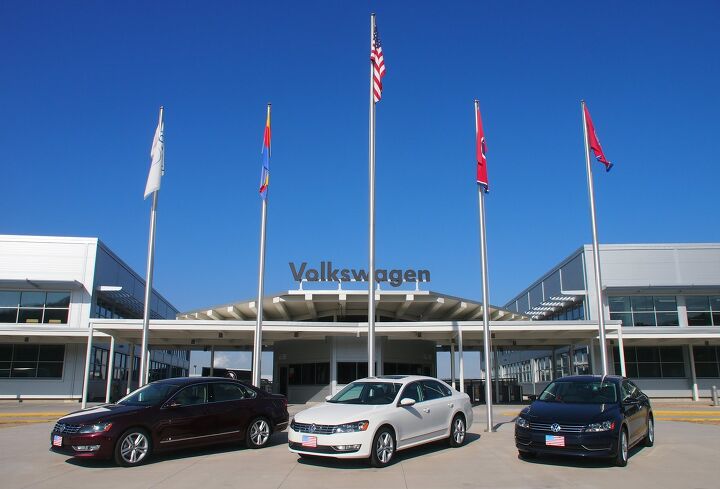















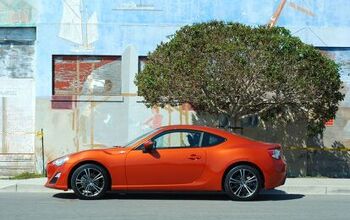
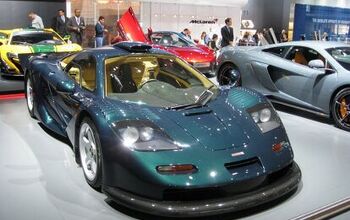
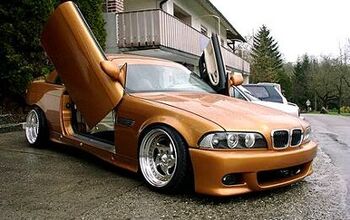
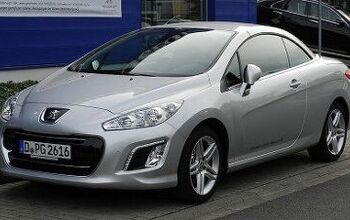
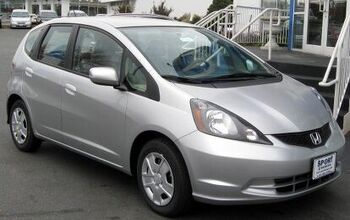










Comments
Join the conversation
Sorry to confuse you all, but Canada and Mexico are both in America. I'm not sure how the USofA managed to appropriate the name of three continents entirely to itself in some people's minds, but Canada and Mexico are both in North America. Canadians and Mexicans are Americans (as are Brazilians!). Problem solved ... the Chevrolet Camaro (Canada), Ford Fusion (Mexico) and Dodge Hemi Engines (Mexico) are American by definition :).
According to the cars.com index my brand new Camry XSE is the most American car sold today. +75% of the parts were made here and it was assembled in either Kentucky or Indiana. More so than even the great F-150. Does it matter that the company is Japanese? Not to me. I care more about the low to mid-level employees that benefit from my car purchase than I do about the executives or shareholders of said company. Less than 25% of my car was made by someone that doesn't reside this country. Americans were paid to make the bits, transport the bits, assemble the bits, transport the completed car and were paid to sell me the car. Meaning more of my dollars supported our domestic economy than if I purchased a Ford, GM or Dodge that was hecho in Mexico, the Great White North or China. So does that make my car American? Well at least more so than the following: F-150 Fusion Fiesta MKZ MKT MKX Edge Flex Camaro Equinox Lacrosse